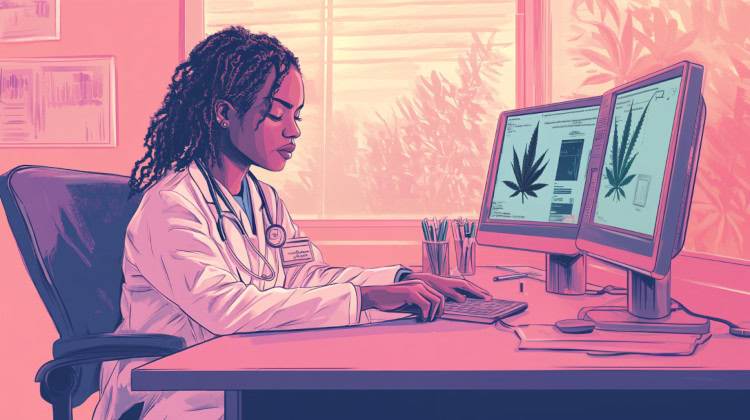The legalization of cannabis is associated with declines in expenditures for prescription drugs, according to a study published this month. The study, conducted by researchers affiliated with Bowling Green State University in Ohio and Illinois State University, analyzed the impact of cannabis legalization laws on spending for prescription drugs among working-age adults with private health insurance.
The research, published in the peer-reviewed journal Health Economics, found that cannabis legalization was associated with significant reductions in prescription drug expenditures among individuals enrolled in small group health insurance plans, which are typically marketed to businesses with fewer than 50 employees.
“We find that net prescription drug claims in small group insurance markets are reduced by approximately six percent following recreational cannabis legalization,” the research team determined, according to a brief on the study by the National Organization for the Reform of Marijuana Laws (NORML). “The reduction in claims in the small group market grows stronger in magnitude over time and gains statistical significance during the second full year of legalized cannabis.”
Study Analyzed Prescription Spending by Small and Large Health Plans
The researchers analyzed prescription drug claims reported by small and large health insurance plans for working-age enrollees between 2010 and 2019. The analysis revealed significant reductions in prescription drug claims of $34-42 per enrollee annually in the small group insurance market following the legalization of recreational cannabis. Legalization was also associated with a reduction of approximately 6% in net prescription drug claims.
The research did not reveal a similar reduction in drug spending among those in large group health plans. Additionally, the researchers did not find strong evidence that the legalization of medical cannabis affects prescription drug claims in either small or large health insurance markets.
The researchers suggested that the absence of reductions in drug spending among those enrolled in large group health plans could be caused by mandatory drug screening policies commonly maintained by many large employers.
“Recreational cannabis laws result in significant relative declines in prescription drug claims that are concentrated in small group insurance markets,” the study’s authors concluded. “The legalization of cannabis offers a potential substitute to traditional prescription drugs and alternative methods for health maintenance.”
Study’s Findings Consistent with Previous Research
The study’s findings are consistent with previous research, which has shown that cannabis legalization is associated with lower health insurance premiums and reductions in Medicare spending.
“We built off prior studies to examine whether declines in prescription drugs among publicly insured populations following cannabis legalization extend to employed individuals,” said corresponding author Rhet A. Smith, Ph.D., of the University of Texas at El Paso, according to a report from Medical Xpress.
“We posit the reduction in prescription drug claims in small group insurance markets and not in large group markets suggests important compositional differences across the two markets that may influence cannabis and prescription drug usage across these populations,” Smith added.
Many Patients Choose Cannabis Over Prescription Drugs
Paul Armentano, NORML deputy director, said that many patients find medical cannabis to be a superior treatment for common medical conditions than commonly prescribed drugs.
“Cannabis has established efficacy in the treatment of multiple conditions, including chronic pain, and it possesses a safety profile that is either comparable or superior to many prescription medicines, like opioids,” Armentano said in a statement from the cannabis policy reform advocacy group. “As legal access continues to expand, one would expect more patients to integrate cannabis products into their wellness strategies in a manner that reduces their overall disease burden as well as their reliance on traditional prescription medications.”
Catch up on the latest cannabis news, and sign up for NuggMD's Weekly Sesh newsletter for the latest cannabis news, consumer tips, and recommendations.
The information in this article and any included images or charts are for educational purposes only. This information is neither a substitute for, nor does it replace, professional legal advice or medical advice, diagnosis, or treatment. If you have any concerns or questions about laws, regulations, or your health, you should always consult with an attorney, physician or other licensed professional.




